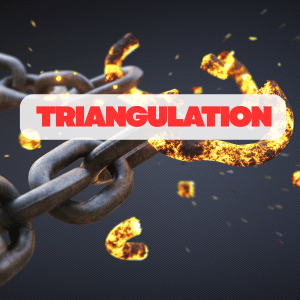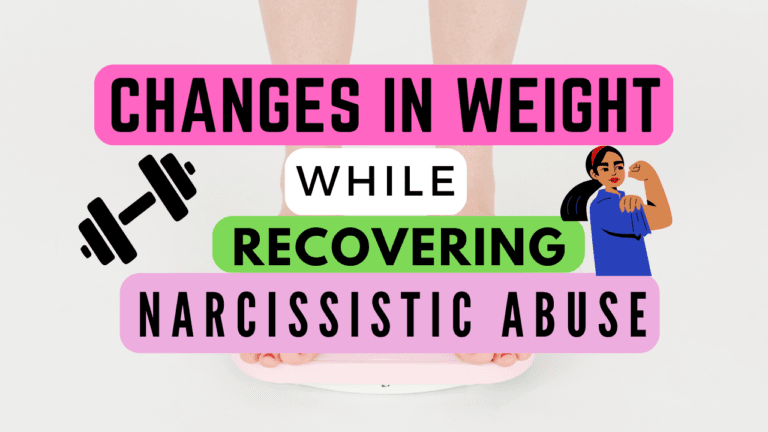Emotional Intelligence (EQ): A Comprehensive Look - plus the Impact on Narcissistic Relationships
This page contains affiliate links for products and services we recommend. We may receive a commission at no additional cost to you. As an Amazon Associate, we earn from qualifying purchases.
Table of Contents
Emotional intelligence (EQ) has emerged as a significant concept in understanding and navigating human emotions and relationships. Coined in the 1990s, EQ has gained widespread recognition as a crucial factor in personal and professional success.
Today, it holds even greater relevance, as we increasingly recognize the essential role emotions play in mental health and overall well-being. This article will explore the concept of emotional intelligence, its historical background, and why it matters, particularly in the context of mental health.
Historical Context
The term “emotional intelligence” was popularized by psychologists Peter Salovey and John Mayer in the early 1990s. They defined it as the ability to recognize, understand, and regulate one’s own emotions and the emotions of others. Soon after, Daniel Goleman’s bestselling book, “Emotional Intelligence: Why It Can Matter More Than IQ,” propelled the concept into the mainstream, sparking widespread interest and research.
Why EQ Matters Today
In today’s fast-paced and interconnected world, emotional intelligence has become increasingly crucial for personal and professional success. While IQ (intelligence quotient) measures cognitive abilities, EQ fills the gap by encompassing skills that go beyond intellectual capacity. EQ allows individuals to navigate social dynamics, handle emotions effectively, and build meaningful relationships.
The Significance of EQ in Mental Health
The discussion of emotional intelligence is intrinsically linked to mental health. Emotional well-being and mental health are deeply intertwined, and EQ plays a vital role in both understanding and managing emotions. Research has shown that individuals with high EQ tend to have better mental health outcomes, including reduced stress, improved resilience, and enhanced self-esteem.
Moreover, EQ can contribute to mental health in several ways. It helps individuals identify and express their emotions, promoting self-awareness and facilitating effective communication. People with higher EQ are more likely to have supportive relationships, as they can empathize with others and navigate interpersonal challenges with greater skill. EQ also aids in managing stress, regulating emotions, and practicing self-care, all of which are crucial aspects of mental well-being.
In recent years, there has been a growing recognition of the importance of emotional intelligence in mental health promotion, prevention, and treatment. Therapeutic approaches like cognitive-behavioral therapy (CBT) often incorporate EQ skills training to help individuals develop emotional awareness, coping strategies, and healthier relationships.
Emotional Intelligence (EQ) in a Professional Setting
Emotional intelligence (EQ) is a valuable trait that plays a crucial role in various areas of both professional and personal life. Here are some key areas where EQ is required, professionally:
- Leadership: Effective leaders require EQ to inspire and motivate their team members, understand their needs and concerns, and foster a positive work environment.
- Communication: EQ is vital for effective communication, active listening, and conveying messages with empathy and clarity, leading to better collaboration and understanding.
- Conflict Resolution: EQ helps in managing conflicts constructively, finding common ground, and facilitating productive discussions, leading to improved team dynamics and problem-solving.
- Teamwork and Collaboration: EQ enables individuals to build strong relationships, empathize with team members, and work collaboratively, fostering a harmonious and high-performing team.
- Decision Making: EQ plays a role in making informed and balanced decisions by considering both rationality and emotional aspects, leading to better outcomes and stakeholder satisfaction.
Personal Relationships and Emotional Intelligence
- Relationships: EQ is crucial for building and maintaining healthy relationships, as it involves understanding and empathizing with others, resolving conflicts, and expressing emotions effectively.
- Self-awareness and Self-management: EQ helps individuals understand their own emotions, strengths, and weaknesses, leading to better self-management, self-regulation, and personal growth.
- Stress Management: EQ enables individuals to recognize and manage stress effectively, cope with challenging situations, and maintain emotional well-being.
- Empathy and Compassion: EQ fosters empathy, allowing individuals to understand and connect with others’ emotions, provide support, and demonstrate compassion.
- Personal Growth and Resilience: EQ contributes to personal growth by promoting self-reflection, adaptability, and resilience in the face of adversity.
EQ is required in various aspects of professional and personal life, enhancing leadership skills, communication, teamwork, relationships, decision-making, and overall well-being.
Developing and nurturing EQ can have a positive impact on both individual success and the quality of relationships and interactions in various spheres of life.
Top EQ Signs Someone Has High EQ
In a world that often values intellectual prowess above all else, emotional intelligence (EI) stands as a quiet yet powerful trait that can greatly impact our personal and professional lives. While it might be challenging to quantify emotional intelligence, there are distinct signs that can help identify individuals who possess this valuable skill.
Empathy that Transcends Words: One of the hallmarks of emotional intelligence is the ability to genuinely understand and share the emotions of others. Individuals with high EI display an extraordinary capacity for empathy, going beyond verbal expressions of support. They can deeply connect with others’ feelings, offering comfort, and providing an empathetic presence that fosters understanding and emotional healing.
Self-Awareness as a North Star: A person’s ability to recognize and understand their own emotions is a fundamental aspect of emotional intelligence. Those with high EI possess an acute sense of self-awareness, being attuned to their feelings, strengths, and weaknesses. By acknowledging and managing their emotions, they navigate interpersonal relationships and challenges with grace, making sound decisions based on an authentic understanding of themselves.
Effective Communication, Mindful Listening: Emotionally intelligent individuals excel in the art of communication, and it goes beyond mere eloquence. They practice mindful listening, paying close attention to both verbal and non-verbal cues. By truly hearing others, they create an environment of trust and understanding. Their communication style is characterized by compassion, clarity, and the ability to convey complex emotions with tact and empathy.
Adapting to Change with Resilience: Emotional intelligence empowers individuals to handle change and adversity with resilience. Those with high EI exhibit flexibility in navigating life’s challenges, demonstrating a growth mindset. They embrace setbacks as opportunities for growth, maintaining a positive outlook, and motivating others during times of change. Their ability to adapt, adjust, and learn from experiences strengthens their emotional intelligence.
Conflict Resolution as a Bridge: Conflict is an inevitable part of human interactions, but individuals with emotional intelligence possess remarkable skills in conflict resolution. They approach conflicts with patience, empathy, and a genuine desire to understand all perspectives involved. Their ability to defuse tense situations, mediate conflicts, and foster compromise makes them invaluable in creating harmonious relationships and productive environments.
Recognizing and Managing Emotions: Emotionally intelligent individuals have a profound understanding of their own emotions and can regulate them effectively. They can recognize when they are experiencing strong emotions and employ strategies to manage them constructively. By remaining composed and self-aware, they prevent emotions from clouding their judgment, enabling them to make rational decisions even in challenging circumstances.
Cultivating Authentic Relationships: Finally, those with high emotional intelligence cultivate authentic, meaningful relationships. They invest time and effort in building connections based on trust, respect, and empathy. Their ability to understand others’ needs and emotions allows them to offer genuine support, celebrate successes, and provide solace during difficult times. These relationships become a testament to their emotional intelligence and contribute to their personal growth and fulfillment.
Non-Verbal Communication Proficiency: Individuals with high emotional intelligence possess a keen ability to understand and interpret non-verbal cues accurately. They can read facial expressions, body language, and tone of voice to grasp the underlying emotions being conveyed. Paying attention to how someone responds to non-verbal cues and their level of sensitivity towards others’ emotions can provide insights into their EQ.
Response to Feedback: Emotionally intelligent individuals tend to have a healthy relationship with feedback. They approach constructive criticism or feedback with an open mind, without becoming defensive or taking it personally. Instead, they see feedback as an opportunity for growth and self-improvement. Observing how someone handles feedback, whether they actively listen, reflect, and make positive changes, can indicate their emotional intelligence.
Conflict Prevention and Management: While conflict resolution is important, emotionally intelligent individuals also excel at preventing conflicts from escalating in the first place. They possess strong conflict management skills, recognizing potential sources of conflict and taking proactive measures to address them early on. Their ability to foster open dialogue, promote understanding, and address concerns in a respectful manner demonstrates their emotional intelligence.
By assessing these additional aspects, you can gain further insights into someone’s emotional intelligence, enhancing your understanding of their interpersonal skills and ability to navigate emotional situations effectively.
Narcissistic Relationships and EQ- Related?
EQ and narcissistic abuse are related in several ways, particularly in the context of the victims’ experience and recovery. Here are a few key connections between EQ and narcissistic abuse:
Recognizing Manipulation and Gaslighting: Emotional intelligence empowers individuals to recognize manipulative tactics and gaslighting employed by narcissistic abusers. Victims with high EQ may have a better ability to discern when their emotions and perceptions are being manipulated or invalidated, helping them break free from the cycle of abuse.
Rebuilding Self-Esteem and Self-Worth: Narcissistic abuse often erodes a victim’s self-esteem and self-worth. Emotional intelligence plays a crucial role in helping individuals rebuild these aspects of their identity. By developing self-awareness, managing emotions, and practicing self-compassion, victims can gradually regain their confidence and sense of self.
Establishing Boundaries and Assertiveness: Emotional intelligence provides the tools necessary for setting healthy boundaries and practicing assertiveness, which are vital in protecting oneself from future abuse. Victims who develop EQ skills can recognize their own needs, communicate them effectively, and establish boundaries that prevent further exploitation.
Healing from Trauma: Narcissistic abuse can cause profound emotional trauma. Emotional intelligence aids in navigating and healing from this trauma by promoting self-care, emotional regulation, and seeking support from trusted individuals or professionals. Developing EQ can help victims process their emotions, regain emotional balance, and work through the lasting effects of abuse.
Empathy and Rebuilding Trust: Emotional intelligence allows victims to develop empathy towards themselves and others. This empathy helps victims understand that the abuse was not their fault and fosters compassion for their own healing journey. Additionally, EQ can assist victims in rebuilding trust in themselves and others, as they learn to discern healthy relationships from abusive ones.
It is important to note that victims of narcissistic abuse may initially have their EQ undermined due to the psychological impact of the abuse. However, by actively developing emotional intelligence skills, they can regain their emotional strength, resilience, and create healthier, more fulfilling lives after the abuse.
By incorporating emotional intelligence into their healing process, victims of narcissistic abuse can better understand, address, and overcome the emotional wounds inflicted upon them, ultimately reclaiming their lives and moving towards a healthier future.
Now that we have explored the concept of emotional intelligence (EQ) and its relevance in today’s world, let’s reflect and engage with a few interactive questions:
- How do you think emotional intelligence can impact your personal and professional relationships?
- Have you ever experienced the positive effects of EQ in your own life? Share an example that comes to mind.
- How might developing emotional intelligence contribute to your overall mental well-being?
- Are there any specific EQ skills you would like to enhance, such as empathy, self-awareness, or conflict resolution?
- In what ways can EQ be integrated into mental health promotion and self-care practices?
We invite you to ponder these questions, share your thoughts, drop a comment, and consider how emotional intelligence can play a transformative role in your life. Remember, developing EQ is a continuous journey that can lead to greater self-understanding, improved relationships, and enhanced mental well-being.






